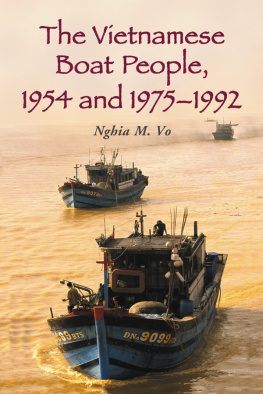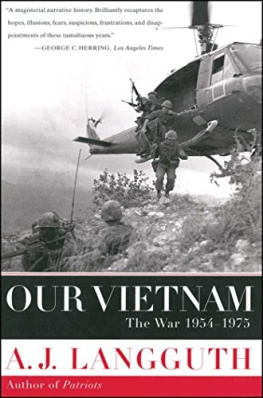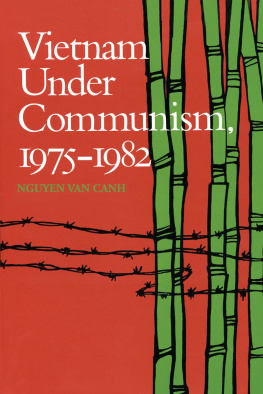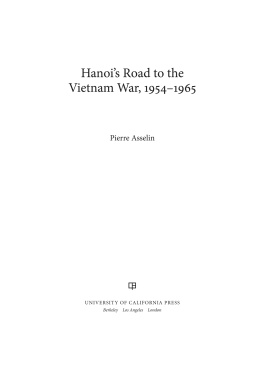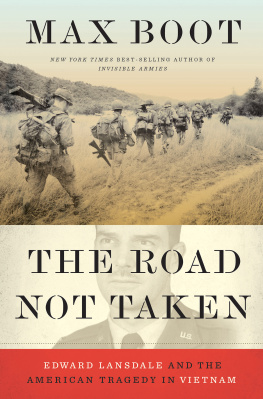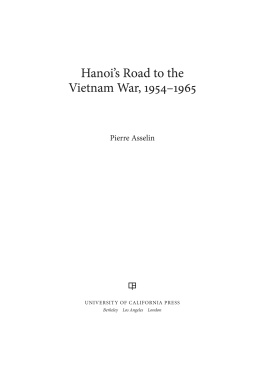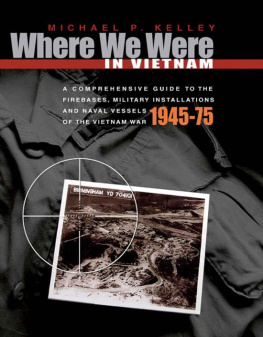Tomes - Apocalypse then American intellectuals and the Vietnam War, 1954-1975
Here you can read online Tomes - Apocalypse then American intellectuals and the Vietnam War, 1954-1975 full text of the book (entire story) in english for free. Download pdf and epub, get meaning, cover and reviews about this ebook. City: New York, year: 1998, publisher: New York University Press, genre: Politics. Description of the work, (preface) as well as reviews are available. Best literature library LitArk.com created for fans of good reading and offers a wide selection of genres:
Romance novel
Science fiction
Adventure
Detective
Science
History
Home and family
Prose
Art
Politics
Computer
Non-fiction
Religion
Business
Children
Humor
Choose a favorite category and find really read worthwhile books. Enjoy immersion in the world of imagination, feel the emotions of the characters or learn something new for yourself, make an fascinating discovery.

Apocalypse then American intellectuals and the Vietnam War, 1954-1975: summary, description and annotation
We offer to read an annotation, description, summary or preface (depends on what the author of the book "Apocalypse then American intellectuals and the Vietnam War, 1954-1975" wrote himself). If you haven't found the necessary information about the book — write in the comments, we will try to find it.
Tomes: author's other books
Who wrote Apocalypse then American intellectuals and the Vietnam War, 1954-1975? Find out the surname, the name of the author of the book and a list of all author's works by series.
Apocalypse then American intellectuals and the Vietnam War, 1954-1975 — read online for free the complete book (whole text) full work
Below is the text of the book, divided by pages. System saving the place of the last page read, allows you to conveniently read the book "Apocalypse then American intellectuals and the Vietnam War, 1954-1975" online for free, without having to search again every time where you left off. Put a bookmark, and you can go to the page where you finished reading at any time.
Font size:
Interval:
Bookmark:
Thank you for buying this ebook, published by NYU Press.
Sign up for our e-newsletters to receive information about forthcoming books, special discounts, and more!
Sign Up!
A publisher of original scholarship since its founding in 1916, New York University Press Produces more than 100 new books each year, with a backlist of 3,000 titles in print. Working across the humanities and social sciences, NYU Press has award-winning lists in sociology, law, cultural and American studies, religion, American history, anthropology, politics, criminology, media and communication, literary studies, and psychology.
Apocalypse Then
American Intellectuals and the Vietnam War, 19541975
Robert R. Tomes

NEW YORK UNIVERSITY PRESS
New York and London
1998 by New York University
All rights reserved
Library of Congress Cataloging-in-Publication Data
Tomes, Robert R.
Apocalypse then : American intellectuals and the Vietnam War, 19541975 / Robert R. Tomes.
p. cm.
Includes bibliographical references and index.
ISBN 0-8147-8234-5 (cloth : acid-free paper)
1. Vietnamese Conflict, 19611975United States. 2. Vietnamese Conflict, 19611975Influence. 3. IntellectualsUnited StatesPolitical activityHistory20th century. I. Title.
DS558.T66 1998
959.7043373ddc21 98-19769
CIP
New York University Press books are printed on acid-free paper, and their binding materials are chosen for strength and durability.
Manufactured in the United States of America
10 9 8 7 6 5 4 3 2 1
Dedicated to
Vincent Gregory Tomes, my father, Lt. Col. Paul John Tomes, my uncle, and Vincent dePaul Tomes, my grandfather, three men who marched through the troubled times described herein with courage and compassion
Many people deserve and receive my heartfelt thanks for their generous encouragement, assistance, and inspiration during the years I have spent writing this book. Of course, any shortcomings or errors contained herein are my responsibility, not theirs.
My interest in American intellectuals and the Vietnam War developed, and subsequently became my dissertation topic, during my years as a graduate student at New York University. I thank my professors, who constantly challenged and motivated me: Paul Baker, Patricia Bonomi, Vincent Carosso, Carl Prince, David Reimers, Albert Romasco, Frederick Schult, Stewart Stehlin, Edward Tannenbaum, Daniel Walkowitz, and Irwin Unger.
I feel it is important to note here that I would not have gone to graduate school without the example, direction, and exposure to intellectual life that many good teachers provided beforehandnotably Thomas Bergin, Maurice Carroll, Mark Fulcomer, Robert Gannon, Peter Hansen, Renato Piazza, and, most of all, Aldo Tos. I acknowledge my debt to them because it is customary to do so in a first book, and, more importantly, because each figured significantly in my thinking on the topic.
I owe an enormous personal debt to Stewart Stehlin, who has had a profound impact on my intellectual development, as well as being a close and supportive friend. My mentor, Irwin Unger, has been an inspiration, example, and friend along the way, repeatedly taking time out of his very busy schedule to read the manuscript, make suggestions for improving it, and provide direction.
I also thank my colleagues and students at St. Johns University for their interest, discussion, and recommendations on matters related to the book, especially my dean, Kathleen Vout MacDonald, who has always been enthusiastic about my intellectual pursuits. Richard Lejeune of Information Technology at St. Johns solved numerous computer problems and glitches related to the many drafts of this manuscript, frequently working overtime to do so. Monica Wood of St. Johns University Libraries, offered invaluable professional assistance and a perpetual friendly ear, both of which I deeply appreciate.
The staffs of St. Johns University Libraries (both Queens and Staten Island campuses), Elmer Holmes Bobst Library at New York University, and the New York Public Library, particularly Marvelous Brooks and William Lee, were consistently gracious and helpful. My sincere appreciation also to Niko Pfund, director and editor in chief of New York University Press, whose enthusiasm for the project was evident from the beginning. Thanks also to Despina Papazoglou Gimbel, Andrew Katz, and Usha Sanyal, all of whom contributed to the editing of the book. I thank my proofreaders for their generous help: Joseph and Ellen Kenny, Daniel Leyes, Eric Miller, and Ann Quinlivan.
After successfully defending my dissertation, I set to work extending my research on the topic, hoping to turn it into my first book. Unforeseen circumstances intervened, however; in 1991, in the middle of intense research and revision, my oldest daughter, Christine, was stricken by a severe, untreatable neurological illness, Rett Syndrome. My familys life was changed forever, as countless and complicated medical, educational, and therapeutic decisions regarding her care needed to be made daily. Although I continued to read, think, and carry on my research, I often felt discouraged, and frequently wondered if I would ever be able to finish a project that not long before had seemed within fairly easy reach.
It was also at this time that I lost my father, Vincent Gregory Tomes, to a brave battle with cancer. He was in many ways the intellectual inspiration of my life, and I had more respect for him than for anyone I have ever known. This book is dedicated to his memory, in gratitude for all the years and all the love, and for the constant exposure he gave me to culture and to intellectual life in all forms. His love of reading and of the arts influenced me profoundly as a child and young adult, and he championed this topic all along as one that sorely needed to be addressed. It is to him I am most indebted for the historian, but most of all the person, I have become.
The double blow took time to heal. I mention it because I was very lucky to have my family and friends behind me throughout; it may well be that I would never have returned to the project without their encouragement and support. I thank especially Gerald Brooks, Salvatore Capuccio, Joseph Daly, James Ducey, Arnold Gold, Daniel D. Leddy, Jr., John McKenna, Thomas Mullin, Patricia OBrien, Gerard Sheridan, Monica Spiro-Farrell, Frances Tomes, and Robert Weiss, in particular, all of whom never stopped assuring me that the book was good, that it was an important contribution to the field, and that it would indeed be published some day.
I also thank my mother, Julia Tomes, for being so helpful and supportive of my professional endeavors. Her assistance in many practical matters, particularly in the later stages of this project, was truly invaluable. I know she is among the happiest to see it completed. My uncle, Paul J. Tomes, and my aunt, Athalie Tomes, have all along had a great interest in the topic, Paul having served two two-year tours in Vietnam as an officer in the U.S. Army. In our many discussions about Vietnam over the years, Paul offered a sobriety and perspective that few written sources could provide, and the book is richer for that. Im sure some of those memories were painful ones to recall, but he never let that stand in the way. I thank him and Athalie most sincerely for all their support.
My grandfather, Vincent dePaul Tomes, firmly believed in the importance of the study of history, and as patriarch saw to it that all the Tomeses had an appreciation of and a respect for the past. Toward the end of his life, when I entered graduate school, his pride in my choice of career goals was critical to my success and perseverancehence his inclusion in the dedication.
Next pageFont size:
Interval:
Bookmark:
Similar books «Apocalypse then American intellectuals and the Vietnam War, 1954-1975»
Look at similar books to Apocalypse then American intellectuals and the Vietnam War, 1954-1975. We have selected literature similar in name and meaning in the hope of providing readers with more options to find new, interesting, not yet read works.
Discussion, reviews of the book Apocalypse then American intellectuals and the Vietnam War, 1954-1975 and just readers' own opinions. Leave your comments, write what you think about the work, its meaning or the main characters. Specify what exactly you liked and what you didn't like, and why you think so.

